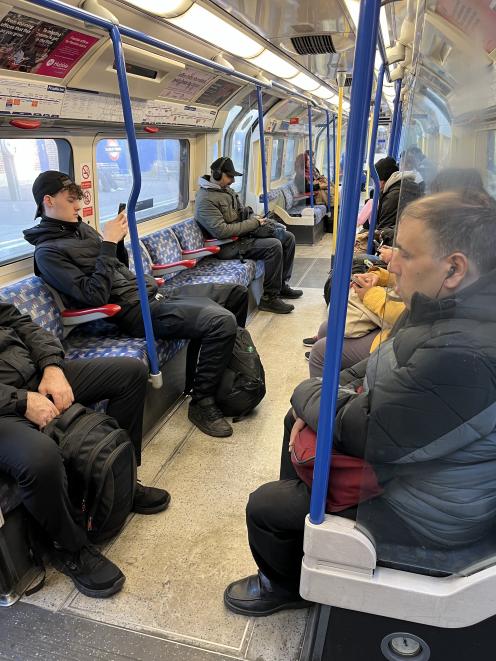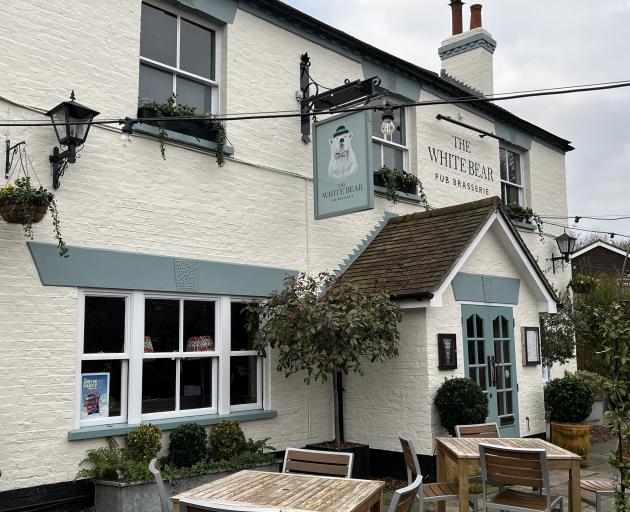
It's a cold early evening. The rush-hour traffic is rumbling. Beyond the thin strip of safety offered in the form of a zebra crossing there’s a beacon of hope on the horizon.
The windows are fogged up, but a bright glow within reveals blurry figures. Step into the light, feel the warmth, hear the crackling and bubbling of the hot oil, smell the vinegar and the fish frying.
Aaah, Friday night at the local fish and chippy. Huge pieces of golden-battered sea creature lying in wait in the warmers, steam rising from the fryers, the menu on the wall offering such delights as cod roe (£2.50), spam fritters (£2.60), mushy peas (£1.90) and curry sauce (£1.90), as well as the usual fish (cod, rock salmon, haddock, plaice, scampi) and pastry fare.
Ray Galton and Alan Simpson couldn’t have put it better in the Hancock’s Half Hour episode "Sid In Love":
"There’s nothing in the world quite like the smell of an English fish and chip shop when it’s working at full blast," Tony Hancock says. "Sling those fillets in, get those chips shovelled out."
I gave my old schoolmate Dennis a £20 note, thinking the equivalent of $40 would more than cover the cost of a piece of rock salmon for him, scampi for me, and two small portions of chips. He still needed another 10 pence to cover it.
While the price seemed very high, with individual pieces of fish between £7 and £9 ($NZ14-$NZ18, that’s about twice the cost here), there were no complaints about the food, liberally sprinkled with salt and vinegar.
It’s a fallacy that Britain is without question pricier than New Zealand. The only other obviously more expensive consumer good I saw was petrol, which, at around £1.48 ($3) a litre for 91-octane fuel, is about 50c a litre dearer.
Coffees cost much the same, though the majority of them taste awful, and supermarket goods are generally considerably cheaper.

The Brits love their supermarkets and exhibit a loyalty to their favoured chain, be it Waitrose, Sainsbury’s, Tesco, Aldi or Lidl.
Waitrose, along with Marks & Spencer, is regarded as the "poshest" (also perhaps read "most expensive") supermarket. Yet compared with New Zealand prices, it seemed cheap.
One dark evening I visited Waitrose and bought a loaf of wholemeal bread, butter, jars of lovely runny British marmite and of peanut butter, shaving foam, milk, chocolate biscuits (you can’t beat McVitie’s dark chocolate hobnobs), two Cadbury creme eggs and earl grey tea bags. I was astounded that it came to just under £20 ($40). I reckon the same here would have cost at least $60.
New Zealand was an early and eager adopter of eftpos several decades ago. However, visits to the United Kingdom used to require taking pocketsful of £5, £10 and £20 notes. Resorting to a credit card was accompanied by lengthy prayer that it might work.

When it comes to the whole Covid nightmare, it seems to be off the agenda in Britain, pushed to the back of the nation’s collective mind. Even on crowded Underground trains I saw few people wearing masks. I soon found it was actually nice to not be thinking about it and not have every detail of every new variant splashed across the headlines.
I had to explain to several people that New Zealand was no longer locked down. As far as they were concerned, the fact our borders were closed for 18 months meant we had been in lockdown that long. They thought that had both made us perhaps unnecessarily paranoid about the virus and now struggling to re-join the rest of the world. I can see their point.
Jacinda Ardern had just stepped down as prime minister before I left for London. Despite the feeling in Britain that New Zealand may have gone too far on the Covid front, there was widespread admiration for her efforts among those I met, many of whom raised the subject. That was a significant change — in the past, New Zealand’s prime ministers were neither known nor talked about much over there.
There are so many other great things I could mention about Britain. The pubs — and I’m not a pub person particularly nor a big drinker — are fantastic, with their history, their snug corners, fairy lights and cosy atmosphere. There’s the wonderful villages which suddenly emerge from the tree skeletons growing in the wintry woods, with names like Wash Water, Crazies Hill and Hell Corner.

Then there’s the witty television advertisements and the catchy campaigns. One which I often heard still sticks in my mind a month on, an exhortation from British Transport Police to look out for suspicious packages or behaviour. Text 61016 (I can remember the number too) — "See it. Say it. Sorted."
Of course, it’s not all beer and skittles in the UK. There’s some terrible crime, awful poverty and societal issues. The gulf between the haves and the have-nots seems to be getting wider.
Driving along another congested bypass, my cousin points at the piles of filthy rubbish strewn along the roadside and dumped in the otherwise pretty woods.
"See, people here just don’t seem to care anymore. The country’s falling to pieces. Brexit and Boris were the final straw, and there’s been bugger-all investment in the NHS and the railways for years.
"I always admired your mum and dad for emigrating. If we were 50, we’d emigrate now. It’s too late for us, but we worry about the future for our kids and the grandchildren."
Finally, it’s time to squeeze everything into the case and head to Heathrow. It’s three weeks since I last heard te reo, or anything about rugby and the All Blacks.
Down the high street one last time, past the plethora of beauty and nail bars, the queues at the bus stop and the double-deckers lumbering along, the churchyard with the crows cawing menacingly among the graves.
I feel sad to go but glad I made it here. This is home. But this isn’t home either.
I’ve seen it. I’ve said it. And, until the next visit God willing, I’ve sorted it too.
— Paul Gorman migrated to New Zealand when he was 10 and calls it home, despite the ever-present tug of the old country.











